Stay Fresh: Water-rich Fruits and Vegetables
Dry weather in autumn and winter can easily make you dehydrated. However, few people recognize the signs of dehydration in this season. So don't forget to drink enough water and consume these following fruits and veggies (which contains at least 90% water by weight). Surely, you'll stay healthy through the season.
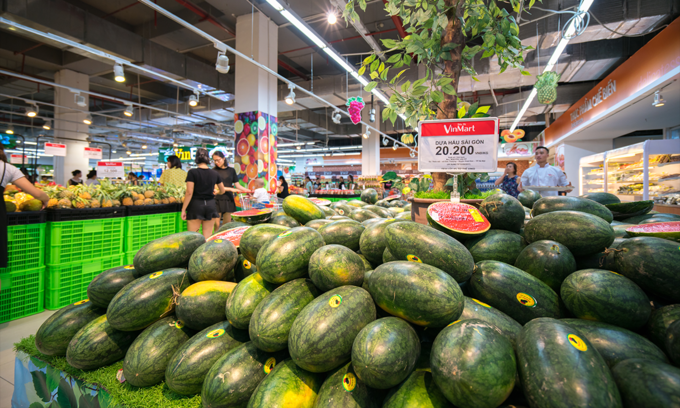 |
| Watermelons are seen in a VinMart supermarket in Hanoi. Photo by Shutterstock |
Watermelon
Water content: 92%
It’s one of the fruits with the highest water percentages that you will find.
It's fairly obvious that watermelon is full of, well, water, but this juicy melon is also among the richest sources of lycopene, a cancer-fighting antioxidant found in red fruits and vegetables. In fact, watermelon contains more lycopene than raw tomatoes—about 12 milligrams per wedge, versus 3 milligrams per medium-sized tomato.
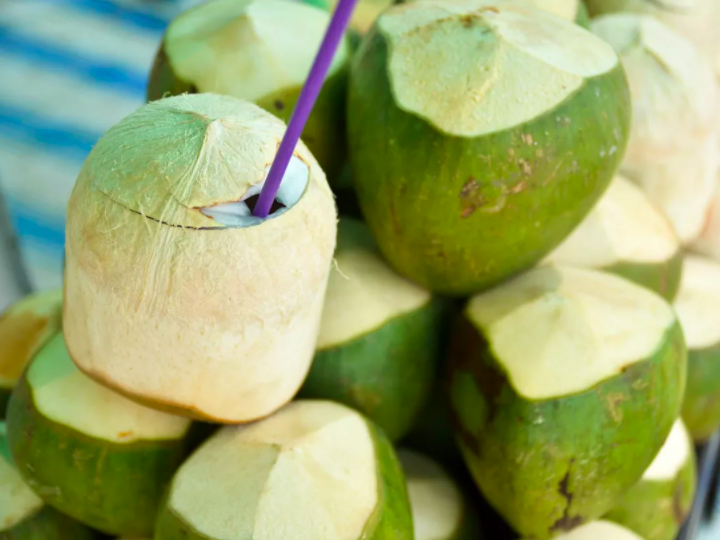 |
| Fresh coconut. Photo: Viettravel |
Coconut
Water content: 94%
Coconuts grow in tropical climates on trees scientifically known as Cocos nucifera, and are botanically considered a fruit.
Coconut water is the liquid found in the center of a young, green coconut. It helps nourish the fruit.
In addition to being naturally sweet and hydrating, coconut water is loaded with several important nutrients, including minerals that many people don’t get enough of.
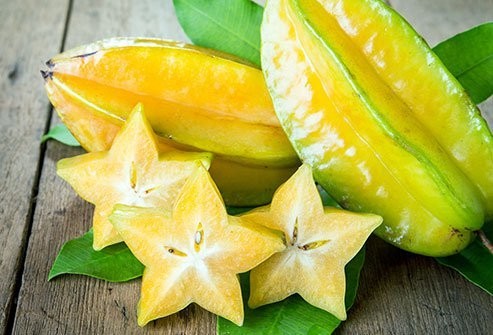 |
| Star fruit — or carambola — is a sweet and sour fruit that has the shape of a five-point star. |
Star fruit
Water content: 91.4%
This tropical fruit, also known as carambola, comes in sweet and tart varieties and has a juicy texture similar to pineapple. Its eye-catching shape looks great in a fruit salad or as an edible garnish on the rim of a summer cocktail, and as an added bonus it's rich in antioxidants, especially epicatechin — a heart-healthy compound also found in red wine, dark chocolate, and green tea.
One note of caution: People with kidney problems should avoid star fruit because of its high levels of oxalic acid.
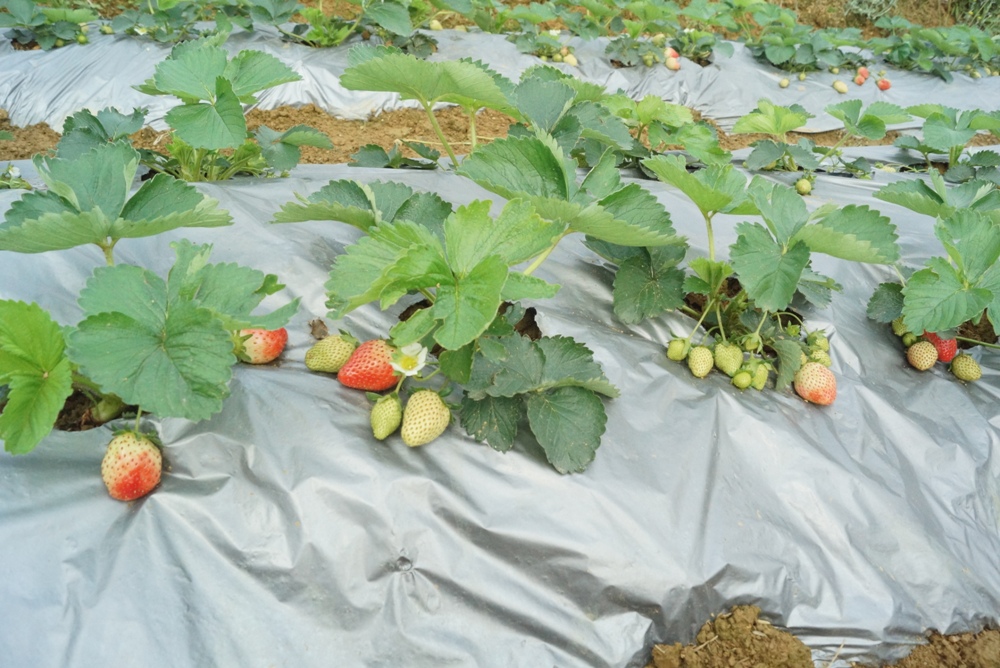 |
| Strawberries. |
Strawberries
Water content: 91%
All berries are good foods for hydration, but juicy red strawberries are easily the best of the bunch. Raspberries and blueberries both hover around 85% water, while blackberries are only slightly better at 88.2%.
Strawberries can be blended in a smoothie or mixed with plain nonfat yogurt—another hydrating food. In addition, strawberries add natural sweetness to the yogurt, and the combo of carbohydrates, fiber, and protein make a great post-workout recovery snack.
| Grapefruit. |
Grapefruit
Water content: 90.5%
This juicy, tangy citrus fruit can help lower cholesterol and shrink your waistline, research suggests. In one study, people who ate one grapefruit a day lowered their bad (LDL) cholesterol by 15.5% and their triglycerides by 27%. In another, eating half a grapefruit — roughly 40 calories — before each meal helped dieters lose about three and a half pounds over 12 weeks. Researchers say that compounds in the fruit help fuel fat burn and stabilize blood sugar, therefore helping to reduce cravings.
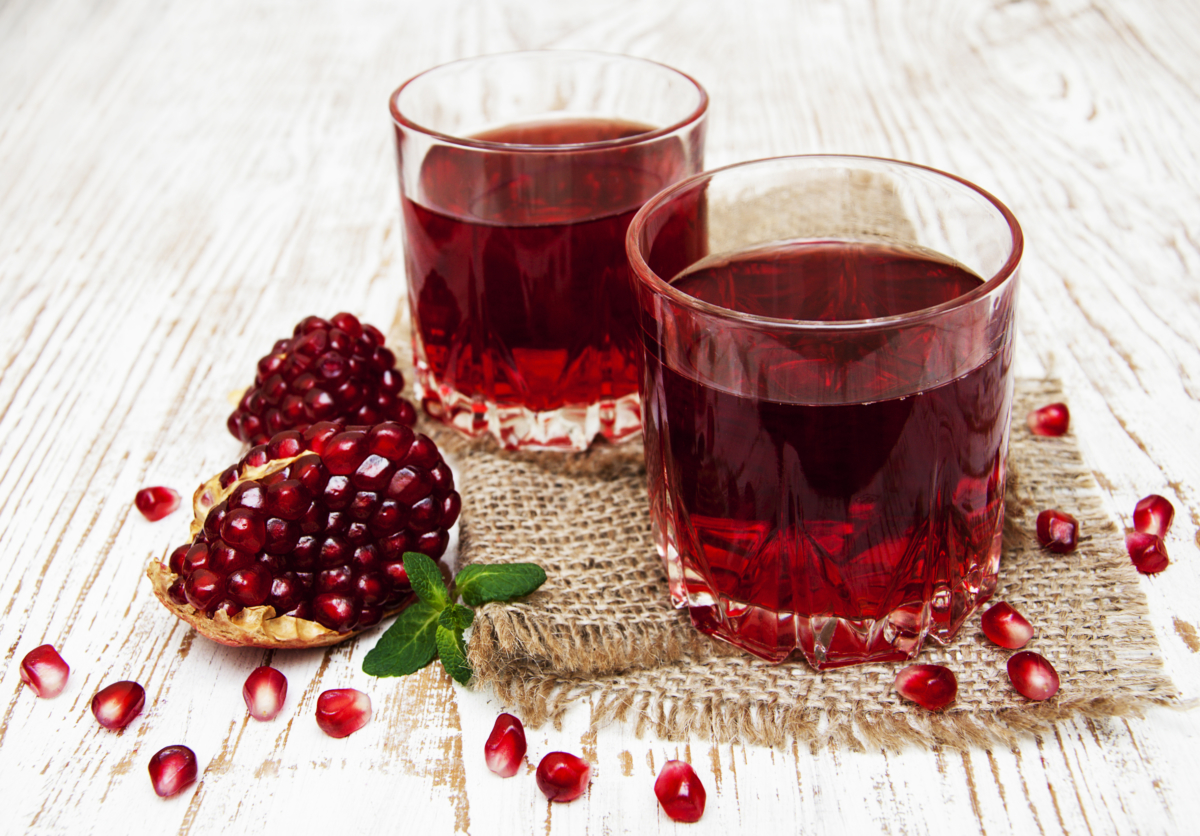 |
| Pomegranate juice. |
Pomegranates
Water content: 90%
Pomegranate is popularly known as the 'fruit of paradise.'
The ruby-colored seeds provide a heap of antioxidants and anti-inflammatories. These can support heart health, reduce the risk of diabetes, and help people fight infections.Trusted Source
A 2019 study showed that drinking pomegranate juice can reduce the build-up of fatty deposits in arteries, which is a culprit behind many heart conditions.
A another study indicated that pomegranate extracts could reduce the effects of photoaging while increasing collagen type I, hyaluronan, and water content of the skin. They also have an anti-oxidative impact on the skin.
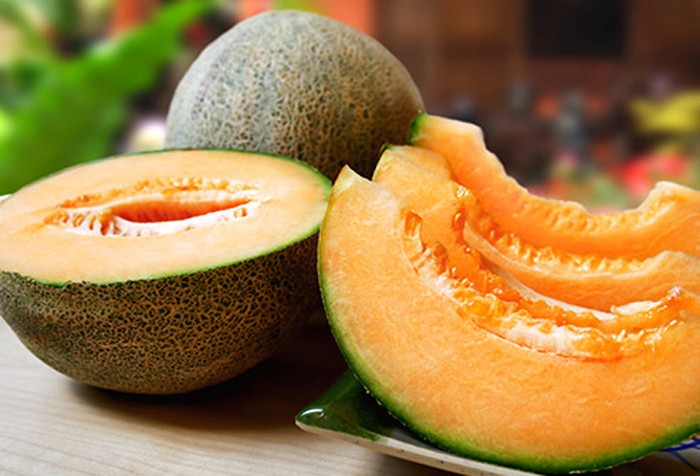 |
| Cantaloupe. |
Cantaloupe
This succulent melon provides a big nutritional payoff for very few calories. One six-ounce serving — about one-quarter of a melon — contains just 50 calories but delivers a full 100% of your recommended daily intake of vitamins A.
Cantaloupe is a favorite dessert of many people, especially those with a sweet tooth. In case you get bored with the plain old raw fruit, just blend cantaloupe with yogurt and freeze it into sherbet, or puree it with orange juice and mint to make a refreshing soup.
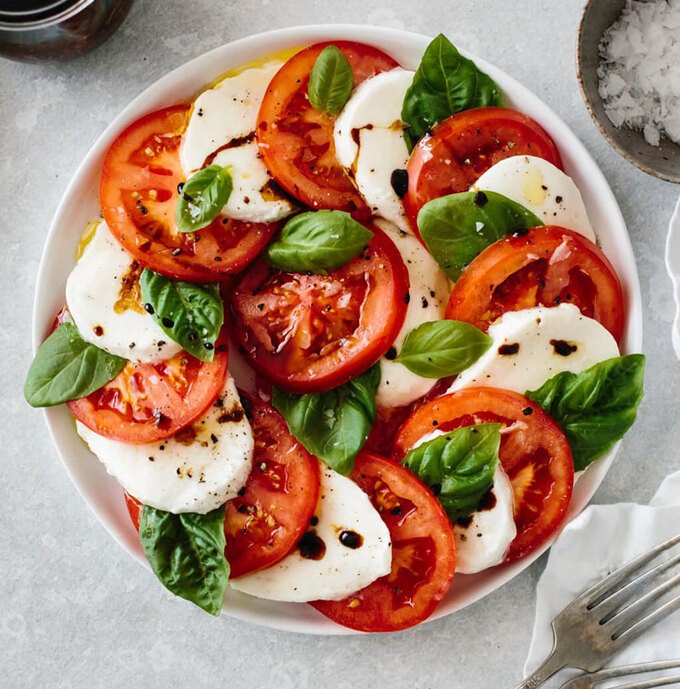 |
| Caprese Salad is a simple and elegant salad made with alternating slices of juicy, ripe tomatoes and creamy mozzarella. |
Tomatoes
Water content: 94.5%
Sliced and diced tomatoes will always be a mainstay of salads, sauces, and sandwiches, but don't forget about sweet cherry and grape varieties, which make an excellent hydrating snack. Let's imagine how the combination goes: they're great to just pop in your mouth, maybe with some nuts or some low-sodium cheese. You get this great explosion of flavor when you bite into them.
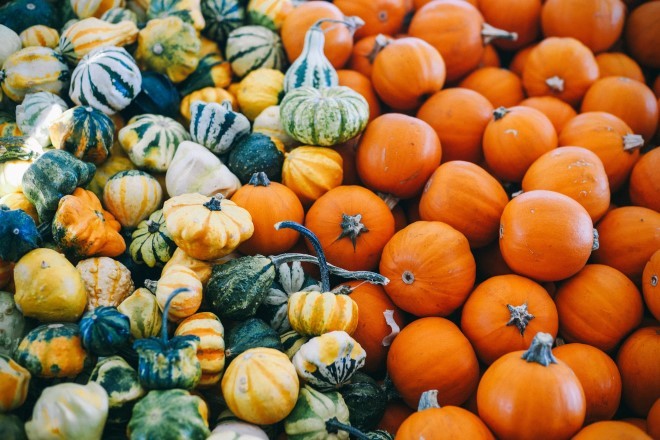 |
| You can substitute pumpkin with kabocha squash or butternut squash. |
Squash
Water content: 90%
Summer squash generally has higher water content than denser varieties of winter squash. Hence, winter squash is considered more nutritious.
Acorn, butternut, kabocha, and delicata squash are all at their prime during the fall and winter. Squash’s trendy golden flesh is teeming with nutrients, including carotenoids, Vitamin A, and potassium.
Since squash is healthy, fairly inexpensive, filling, and super darn tasty, it’s no wonder that there are thousands of awesome recipes for them.
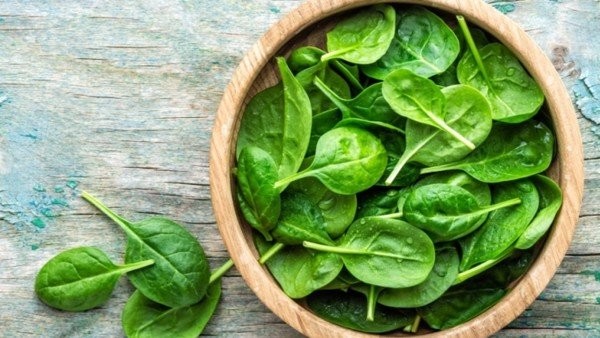 |
| Spinach. |
Spinach
Water content: 91.4%
Iceberg lettuce may have a higher water content, but spinach is usually a better bet overall. Piling raw spinach leaves on your sandwich or salad provides nearly as much built-in hydration, with an added nutritional punch.
Spinach is rich in lutein, potassium, fiber, and brain-boosting folate, and just one cup of raw leaves contains 15% of your daily intake of vitamin E — an important antioxidant for fighting off the damaging molecules known as free radicals.
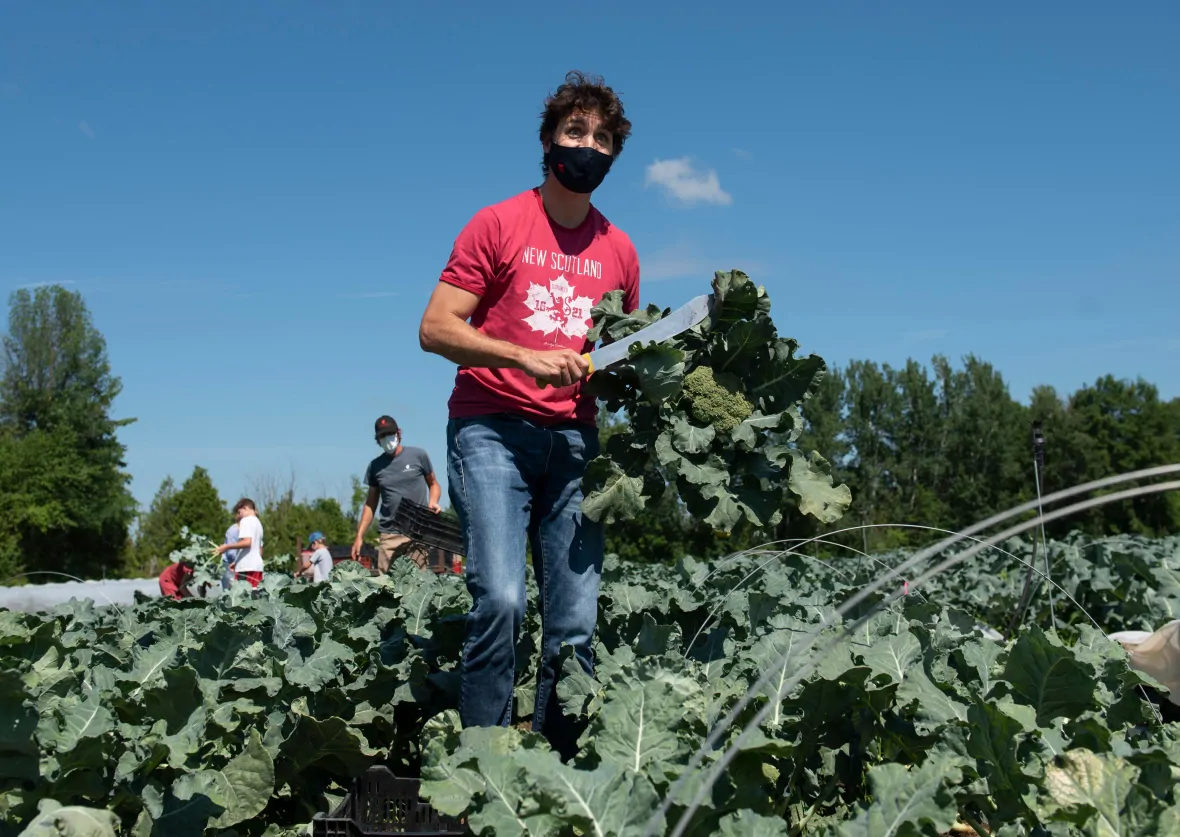 |
| Prime Minister Justin Trudeau looks up as he harvests broccoli at the Ottawa Food Bank Farm with his family, on Canada Day, July 1, 2020, in the midst of the COVID-19 pandemic. Source: Justin Tang/The Canadian Press |
Broccoli
Water content: 90.7%
Like its cousin cauliflower, raw broccoli adds a satisfying crunch to a salad. But its nutritional profile — lots of fiber, potassium, vitamin A, and vitamin C — is slightly more impressive. What's more, broccoli is the only cruciferous vegetable (a category that contains cabbage and kale, in addition to cauliflower) with a significant amount of sulforaphane, a potent compound that boosts the body's protective enzymes and flushes out cancer-causing chemicals.
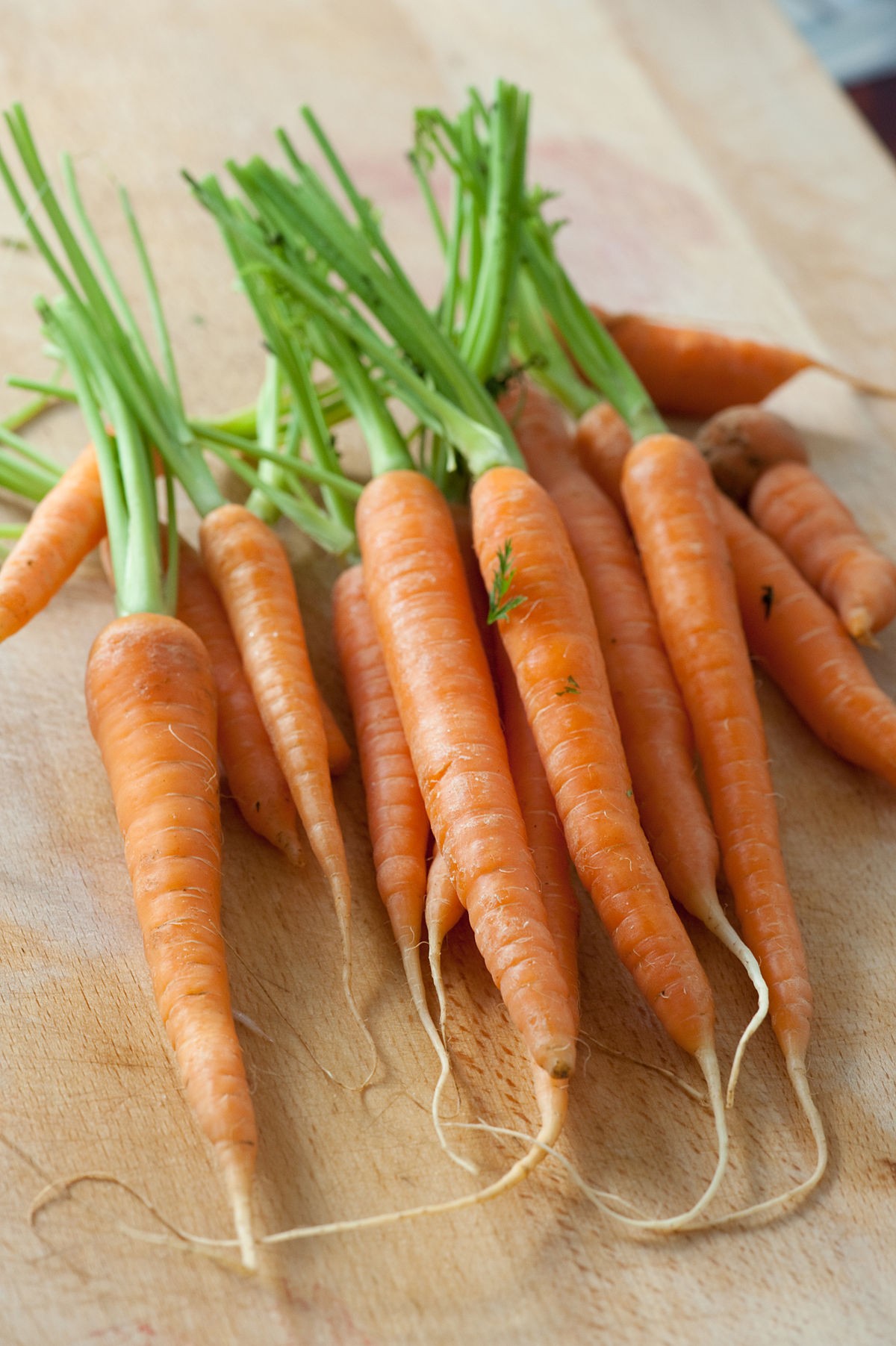 |
| Baby carrots. |
Baby carrots
Water content: 90.4%
A carrot's a carrot, right? Not when it comes to water content. As it turns out, the baby-sized carrots that have become a staple in supermarkets and lunchboxes contain more water than full-size carrots (which are merely 88.3% water).
The orange veggies are also brimming with vitamin C and lutein, antioxidants that can help you keep disease the heck away.
The ready-to-eat convenience factor is hard to top, as well. Snack on them right out of the bag, dip them in hummus or guacamole, or — for a bit of added crunch and bright orange color — chop them up and add them to salads or salsas.
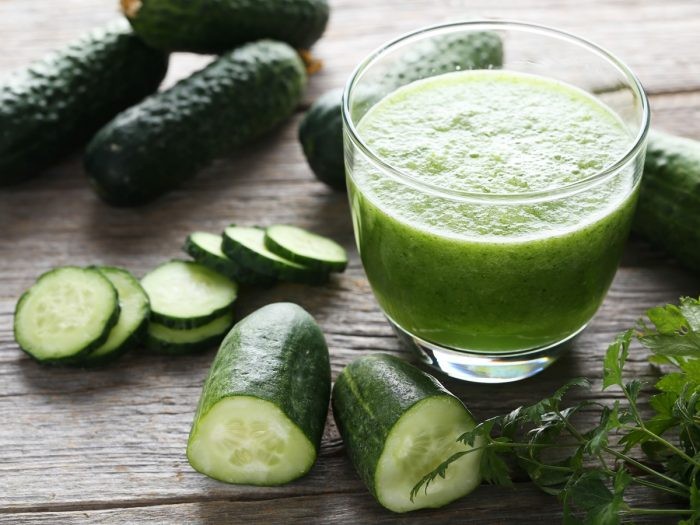 |
| Cucumber. |
Cucumber
Water content: 96.7%
This summer veggie — which has the highest water content of any solid food — is perfect in salads, or sliced up and served with some hummus, says Keri Gans, author of "The Small Change Diet: 10 Steps to a Thinner and Healthier You" and a consultant to Mindbloom, a technology company that makes life-improvement apps.
Want to pump up cucumber's hydrating power even more? Try blending it with nonfat yogurt, mint, and ice cubes to make cucumber soup.
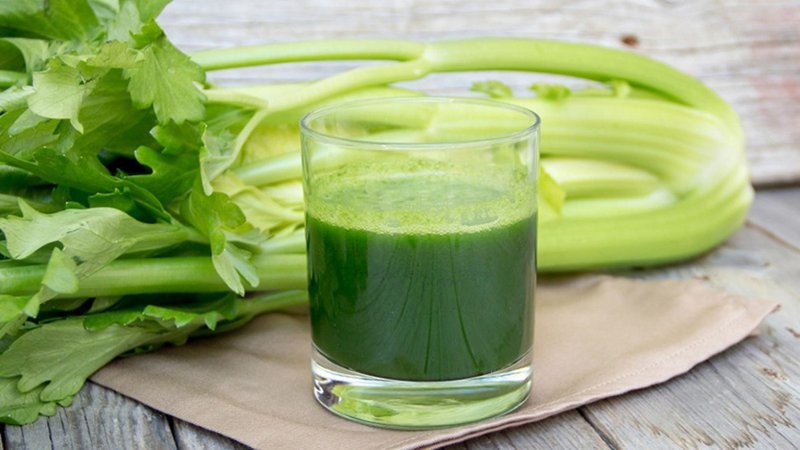 |
| Celery. |
Celery
Water content: 95.4%
That urban legend about celery having negative calories isn't quite true, but it's pretty close. Like all foods that are high in water, celery has very few calories — just 6 calories per stalk. And its one-two punch of fiber and water helps to fill you up and curb your appetite.
This lightweight veggie isn't short on nutrition, however. Celery contains folate and vitamins A, C, and K. And thanks in part to its high water content, celery neutralizes stomach acid and is often recommended as a natural remedy for heartburn and acid reflux.
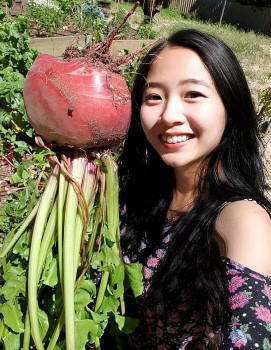 | Beets by Tu Anh: Vietnamese Expat Grows Giant Produce in Australia A Vietnamese woman living in Australia plants large size fruits and vegetables in her 1,000 sq.m garden. The fruits and vegetables are a source of ... |
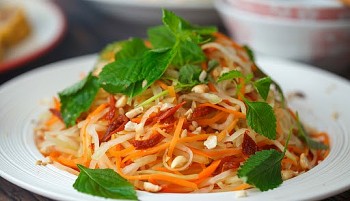 | The Best Vegetarian Street Food Dishes in Vietnam Vietnam is famous for its street food, and there is also vegetarian options for vegan tourists to taste the rich cuisine of this country. |
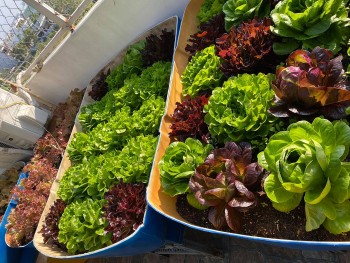 | Fun Lockdown Activities: Easy Vegetables to Grow Indoors While growing vegetables indoors in containers has its challenges, it is possible to have great success. |
Recommended
 Handbook
Handbook
Vietnam Moves Up 8 Places In World Happiness Index
 Handbook
Handbook
Travelling Vietnam Through French Artist's Children Book
 Multimedia
Multimedia
Vietnamese Turmeric Fish among Best Asian Dishes: TasteAtlas
 Handbook
Handbook
From Lost to Found: German Tourist Thanks Vietnamese Police for Returning His Bag
 Handbook
Handbook
Prediction and Resolution for the Disasters of Humanity
 Handbook
Handbook
16 French Films To Be Shown For Free During Tet Holiday In Vietnam
 Handbook
Handbook
Unique Cultural and Religious Activities to Welcome Year of the Snake
 Handbook
Handbook


